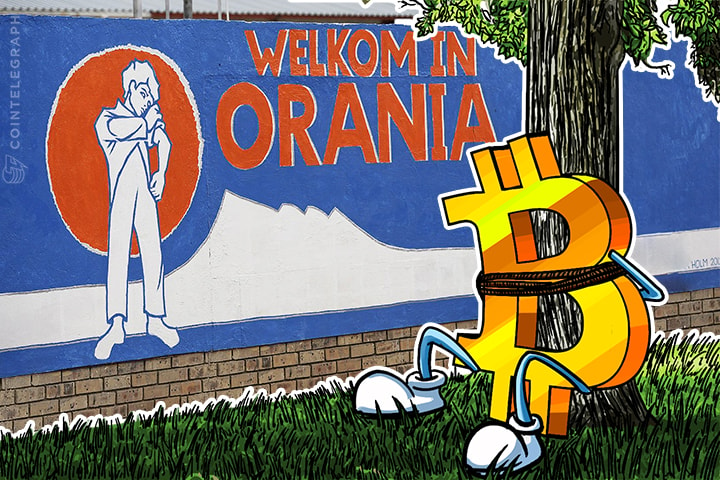A controversial racially segregated bastion in the North West Province of South Africa that operates outside the laws of the country is now seeking to upgrade its functioning fiat currency with a digital version.
Orania, a small town in the remote parts of South Africa has about 1,400 residents that live in self-sufficiency with strict laws about the makeup of their ethical population. Currently, 97 percent of the town is white, in a country where the demographic sees just 10 percent nationwide being classed as white.
Apartheid bastion
Created in 1991 by Afrikaners on private land, ahead of the democratic elections that brought South Africa into the modern world in 1994, Orania was created as a bastion for believers in the cruel and inhumane principles of Apartheid to continue existing.
As a self-sufficient town, Orania introduced its own currency called the Ora in 2004 in the hopes of promoting local spending and boosting the town’s small economy. Now, with the boom in digital currencies, Orania hopes to implement this forward thinking technology into its socially backward ways.
This is not the first time a self-proclaimed micronation has made a foray into digital currency as Liberland, on the banks of the Danube river in Europe, has also done something similar with digital currencies. Another example is Liberstad in Norway, which looks to be an entirely privately run city, with a decentralized monetary system
Ora goes E-Ora
Ora currently functions like a token or voucher with the users benefiting from discount prices in the town. It is of course not recognized by the South African reserve bank, however, within Orania it can be traded for South African rands at the so-called central bank at a rate of one-to-one.
The next step for Orania is to do away totally with the town’s fiat currency and thus remove transaction fees which are slowing the use of the internal currency.
Dawie Roodt, chief economist at the Efficient Group, a financial consultancy hoping to help the town reduce the transaction costs of the paper Ora, says:
"If you can reduce the cost of the transaction, you can boost economic activity quite substantially."
Just like the Ora is far removed from the Dollar, or indeed even the South African Rand, the E-Ora will be a far cry from something like Bitcoin, but the people at Efficient Group are hoping to take tips and methods from Blockchain currencies in their design of this digital currency.
"There are significant technological changes taking place in the financial space - like Bitcoin," Roodt commented, alluding to Bitcoin being the basis on which this currency may be built on.
Highlights the benefits
Despite the obvious social and humanitarian crimes that Orania revels in, the small town acts as an interesting case study as to the value of a full digital currency on a micro level.
The hope is that the digital currency will take away fees involved in printing and transferring the current paper money system, boosting the economy as people invest wholly in the virtual E-Ora. This, in turn, will boost the town's economy and could very well be an economic microcosmic lesson - but definitely not a social lesson.
Orania Movement's James Kemp, 35, says:
"I'm a young guy; I'm used to mainly doing online banking and the advantages that come with that. So if I can go further and build my own economy with that, I definitely welcome that."


